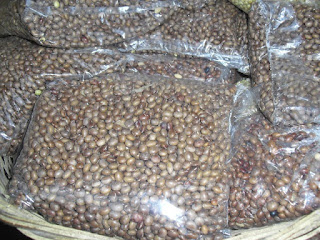 In our everyday conversation, we refer to something or someone as ‘resilient’ if that entity rises above hardships, struggles, and setbacks and succeeds. Resilience, in this sense, denotes the ability of a person or objects to handle difficult situations. This short account describes what a resilient community would look like and discusses some of its features.
In our everyday conversation, we refer to something or someone as ‘resilient’ if that entity rises above hardships, struggles, and setbacks and succeeds. Resilience, in this sense, denotes the ability of a person or objects to handle difficult situations. This short account describes what a resilient community would look like and discusses some of its features. Walker and Salt (2012) define resilience as the ‘ability’ of an individual or a system to withstand ‘shocks and keep functioning in much the same kind of way.’ In other words, it is ‘the capacity of a system to absorb disturbance and reorganize so as to retain essentially the same function, structure, and feedbacks – to have the same identity.’ Therefore, ‘resilience thinking’ gives us a ‘useful framework’ that helps us understand more why systems behave in a particular way (Walker and Salt 2012) .
Rob Hopkins (2009) identifies three critical parameters to consider when looking for a community’s resilience – diversity, modularity, and tightness of feedbacks. In other words, a resilient community has diverse livelihood options, focuses on local businesses, and taps renewable energy sources. A resilient community is better prepared for external – national or international – market forces and can propose local solutions to many issues, as feedbacks reach in a shorter duration.
A resilient community grows its food, and thus changes in the market do not disrupt the local food supply. The distance food travels from farms to plates is shorter compared to those consumer goods in the supermarkets. A resilient community also grows diverse crops so that if one fails, others yield good harvests. In other words, a resilient community or region is better equipped to cope up with external forces (Walker and Salt 2012) .
 A community is more resilient if its ‘enterprises’ are mostly local. Having international chains kills the ability of the community members to produce on their own. Local companies create employment opportunities for people in the community.
A community is more resilient if its ‘enterprises’ are mostly local. Having international chains kills the ability of the community members to produce on their own. Local companies create employment opportunities for people in the community. A resilient community makes use of solar and wind energy options instead of being heavily reliant on the energy supplies from outside. A resilient community makes its members aware of issues such as waste management and thereby can solve local problems locally.
A resilient community is an ecologically diverse community. Socially, a resilient community provides opportunities for social cohesion. In a close-knit system, everyone knows everyone, and everyone finds a connection to everyone. The social support is another reliable indicator of a resilient community. Culturally, a resilient community celebrates the diversity of cultural practices and rises above politics to protect their identities.
Finally, a resilient community is a vibrant community. It promotes the local economy and encourages diversity in its approach to ecology, culture, food production, and land use.
References:
Walker, B. and Salt, D. 2012. “Preparing for Practice: The Essence of Resilience Thinking”. Chapter 1 in Resilience Practice. Washington: Island Press
Hopkins, Rob. 2009. ‘Resilience Thinking.’ Resurgence. No. 257 November/December
Comments
Post a Comment
So what do you think?